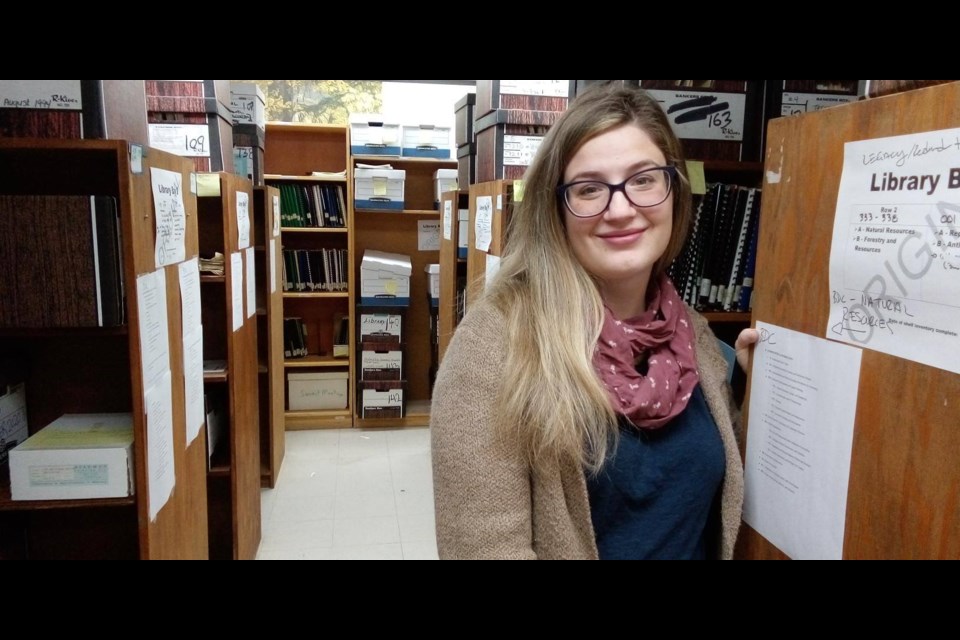The organizing of books and materials at the Carrier Sekani Tribal Council's library and archive is being switched over to a more culturally-appropriate system.
Archivist Kat Louro has been working to replace the Dewey decimal system with one that takes Indigenous issues into account. It was developed in the 1970s by Canadian Kahnawake Mohawk librarian Alec Brian Deer and has grown in popularity.
Although used worldwide, the Dewey system is very Western in its structure.
"What that means is Indigenous information is approached as a thing to be studied through a Western, colonial lens that reinforces the North American representation of First Nations as a past culture rather than a modern, growing peoples," Louro said.
In contrast, the system Deer developed does a better job of reflecting the issues of the day. Along with sections devoted to the history and culture of specific First Nations, rights and title has its own classification as do particular issues such as missing and murdered Indigenous women and girls, pipeline response and the Kemano project.
It also does away with classifying books through an essentially numerical system in favour of one that relies on letters. Users will typically start their search by going to a particular subject category, followed by a subheading, then the author and year of publication.
"For cataloguing purposes it's way more flexible and easy for non-librarians and archivists to understand and implement," Louro said.
Louro said the project began in February 2019 when Sarah Dupont, the head librarian at Xwi7xwa (pronounced whei-wha) Library, a First Nations library at the University of British Columbia, approached her about making the move.
"We started to assess the collection as it stood and then we built a version of the Brian Deer classification system to meet the needs of the organization and then we created a cataloguing manual to standardize that work and make it accessible for non-librarians and archivists," Louro said.
From there it has been a matter of sifting through roughly 2,500 items. Much of that work is being carried out by students hired with the help of Young Canada Works grants. There are about 500 books, or about a year's worth of work, to go.
The effort has involved its share of judgment calls.
"You could have a resource that could fit under a natural resource collection or lands, rights and titles so there is a bit of independent judgment in terms of what's going to make it accessible and visible for communities because researchers look for information in different ways," Louro said.
She said the Dewey system still has its place in the larger, integrated library systems and work is underway to amend its more troublesome aspects.
"But we have this growing, Indigenous-based system in Canada that's really being used a lot in B.C. and it works way better for the intent of our library," Louro said. "It's not designed for the Western discipline of studies, it's really about action and the work that Indigenous political organizations are doing right now."



